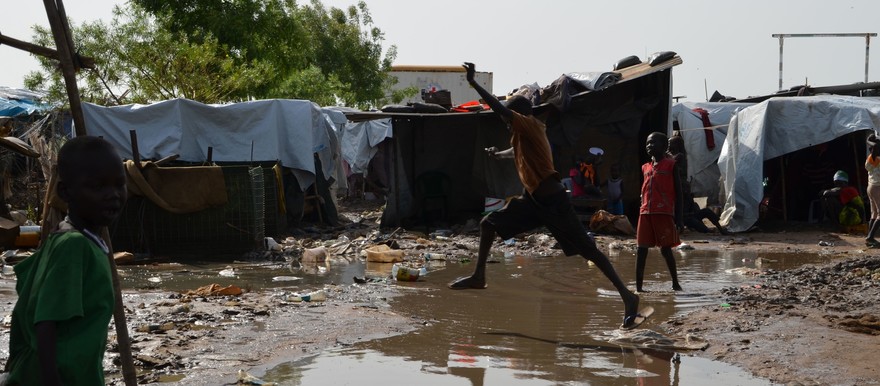Doctors expect ‘huge spike in malaria cases’ at Tongping camp

Doctors Without Borders (MSF) says that the first torrential rains of the season have increased the risk of malaria for residents of the ‘protection’ sites at UN bases in the capital of South Sudan.
More than 25,000 people are packed into the overcrowded and flooded site on the UN Tongping premises in Juba, almost all of them ethnic Nuers. They arrived in the camp after violence in Juba in mid-December.
The rains flooded nearly 20 percent of the area allocated for the displaced people, leaving their makeshift shelters under water and destroying belongings. The deluge also destroyed approximately 150 latrines.
“The MSF team was already treating large numbers of patients suffering from diarrhoea, malaria and respiratory infections, illnesses that will only surge with the coming rains,” the aid group stated Thursday.
Carolina Lopez, emergency coordinator for MSF, points out the rainy season “is always accompanied by a huge spike in malaria cases,” adding that the living conditions in the camp now increase this risk.
MSF highlighted the sanitation problem, describing “stagnant water, severe overcrowding, inadequate drainage and a dire shortage of functional latrines.”
“The major problem is the lack of space, now made worse by the flooding,” says Lopez. “People are forced to live on top of each other in extremely cramped and unsanitary conditions.”
Photo: Aurelie Baumel/MSF
Related coverage:
Scramble to decongest Juba camps after first rains (18 March)